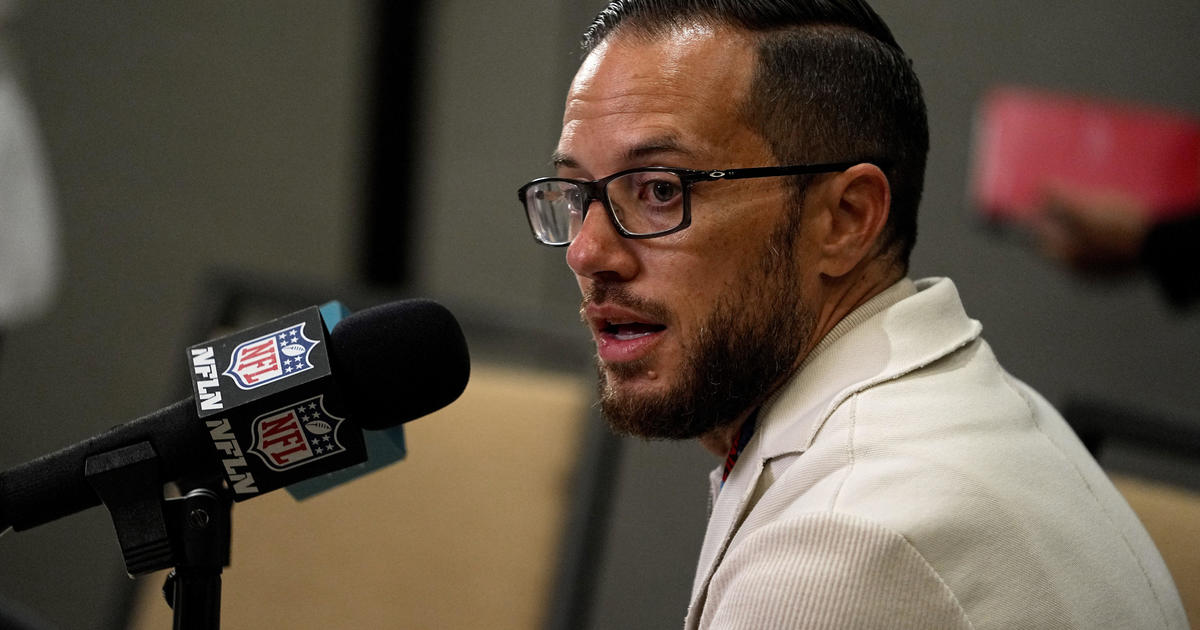Exclusive: The FBI's Man Inside Opa-Locka, Part 1
Follow CBSMIAMI.COM: Facebook | Twitter
OPA-LOCKA (CBSMiami) – Frank Zambrana had hoped to find his piece of the American dream repairing and selling farm equipment on an acre of land in Opa-locka. He had a lease. All he needed was an occupational license. The cost should have been no more than $200.
"So I went to the city hall in Opa-locka to apply for a license and this is when everything started for me," the 47 year old said. "All my complications started."
Zambrana, whose story was first reported by the Miami Herald, had no way of realizing that when he applied for that license in 2013 it was going to lead to one of the largest public corruption investigations in South Florida in the last twenty years.
In hindsight, Zambrana said he feels foolish for being so naïve. For reasons he couldn't understand, Zambrana's application kept getting rejected.
"Everything they asked me to fix, I fixed it, until one day, it was my fifth time that I went to Opa-locka, and I had this gentleman," he recalled. "I didn't know who he was until he approached me. And he told me he heard I had problems with my license. He told me he could help me."
Zambrana said the man who offered his help was Opa-locka City Commissioner Luis Santiago.
According to Zambrana, as they walked through city hall, Santiago pointed to his picture hanging on the wall.
"He said, 'Look at me. That's me there. I'm the commissioner from the city of Opa-locka,'" Zambrana recalled. "'I can make things easy for you to get your license.'"
They agreed to meet at Zambrana's business.
"He showed up there and he told me the rules of the game," Zambrana said. "I had to pay. I had to pay money in order to get my license there."
Zambrana said Santiago asked for $2,500. And he wanted it all in cash.
Looking back on it, he said, it could be hard for some people to understand why he would agree. At the time, he felt he had no choice.
"I feel like I was against the wall," he said.
Even more important, he believed that location, and the business he would open, was critical to his family's future.
"I had a dream on that place," he said. "I wanted my business to grow. I had many plans for that place. All I want is a license to work. That was my idea, get a license to work; pay my taxes like everybody else; have a bank account like everybody else. I have five kids and I was trying to secure the future of my kids; to put my kids in a better situation."
Zambrana said he paid Santiago, but nothing happened. Weeks went by and suddenly Zambrana had another problem, the head of code enforcement for the city was threatening to fine him because he didn't have a license.
"I was under a lot pressure," he said. "I was under a lot of pressure."
Zambrana said he soon heard again from Commissioner Santiago who demanded more money. Again he agreed to pay. But there were still no license. He said the threats from code enforcement were only getting worse.
Soon, Zambrana said, Santiago introduced him to Dante Starks, a former Miami Dade police sergeant who now worked as a lobbyist. Starks demanded money as well, Zambrana claimed.
Starks declined to comment.
Zambrana said his breaking point came when Gregory Days, the code enforcement chief, showed up at his business with the police. He said Days started yelling at him.
"He said, 'Today you are going to be arrested.' I'm never going to forget this day," Zambrana recounted. "'Today you're going to be arrested. Today's your day.'"
With the police officer standing nearby, Days' phone rang.
"Mr. Days handed the phone to me and he said, 'Hey somebody wants to speak to you.' So he handed the phone to me. It was Dante Starks calling me asking me for the rest of the money. And I asked Dante, 'Dante this guy is calling the police on me.' And Dante said, 'You see, we're not playing here. We're not playing here. You have to come up with the rest of the money.'"
Contacted by phone, Days told CBS4 News: "I don't have any comment."
That night Zambrana couldn't sleep. He didn't know where to turn however. He said he dialed 911 and asked to speak to the FBI. The operator instead gave him the address for the FBI in North Miami. That day, he said, he walked into the FBI headquarters and asked to speak to an agent. They questioned him and showed him pictures of city officials. He said the agents were excited.
He recalled them saying, "We're going to give you the money. You're going to pay these people. We want to see what is what."
They gave him the money, copying the serial numbers on the bills first. They also provided him a hidden video recorder and a hidden audio recorder.
When Santiago picked him up for their next meeting, Zambrana said he was wired and ready to go. Santiago pulled up and motioned for him to get into his city-issued SUV.
"In the middle of the consul there was a gun in the car," he recalled.
Santiago then patted Zambrana down for recording devices, according to Zambrana, but didn't find where they were hidden.
"I was scared," he said. "I was scared. It wasn't part of the plan to get into his car."
After driving around for a while, Santiago called Dante Starks, whose nickname in Spanish is "Pulpo" – the octopus.
"Then Pulpo showed up," he said. "I gave him the $500. And everything was recorded, everything was on video."
Santiago said after he made the payoff he met with the team of federal agents who had been keeping him under surveillance. They drove to a quiet spot where the agents plugged the recording device into a laptop computer.
"They saw everything," he said. "They watched it right there in front of me. They say, 'Wow.' That was the only thing they said, 'Wow.'"
Now that they knew Zambrana was the real deal, the agents met with him the next day at his home.
"They asked me if I want to see these people in jail, I have to work with them," he said. "I agree. I ask my wife, my kids, they said yes."
Zambrana said it appeared to him the federal agents had been interested in these officials for some time.
"My idea was that it was going to be something quick," he said, "like three, four months, six months."
Instead it has dragged on for nearly three years.
Zambrana during that time he has made between 15 and 20 payoffs on camera for the FBI.
Yet despite all of the evidence Zambrana said he provided to the FBI, Santiago remains a city commissioner. CBS4 News asked him about the allegations following a recent commission meeting.
"Well, sir the only thing I have to say is I'm innocent," he said. "That's a false accusation."
He referred questions to his attorney, Rod Vereen, who again proclaimed his client's innocence.
"Mr. Zambrana is someone who cannot be trusted," Vereen said.
(In Part 2 of The FBI's Inside Man, Zambrana discusses how this corruption probe spread to others at city hall, including the city manager and a son of the mayor.)



